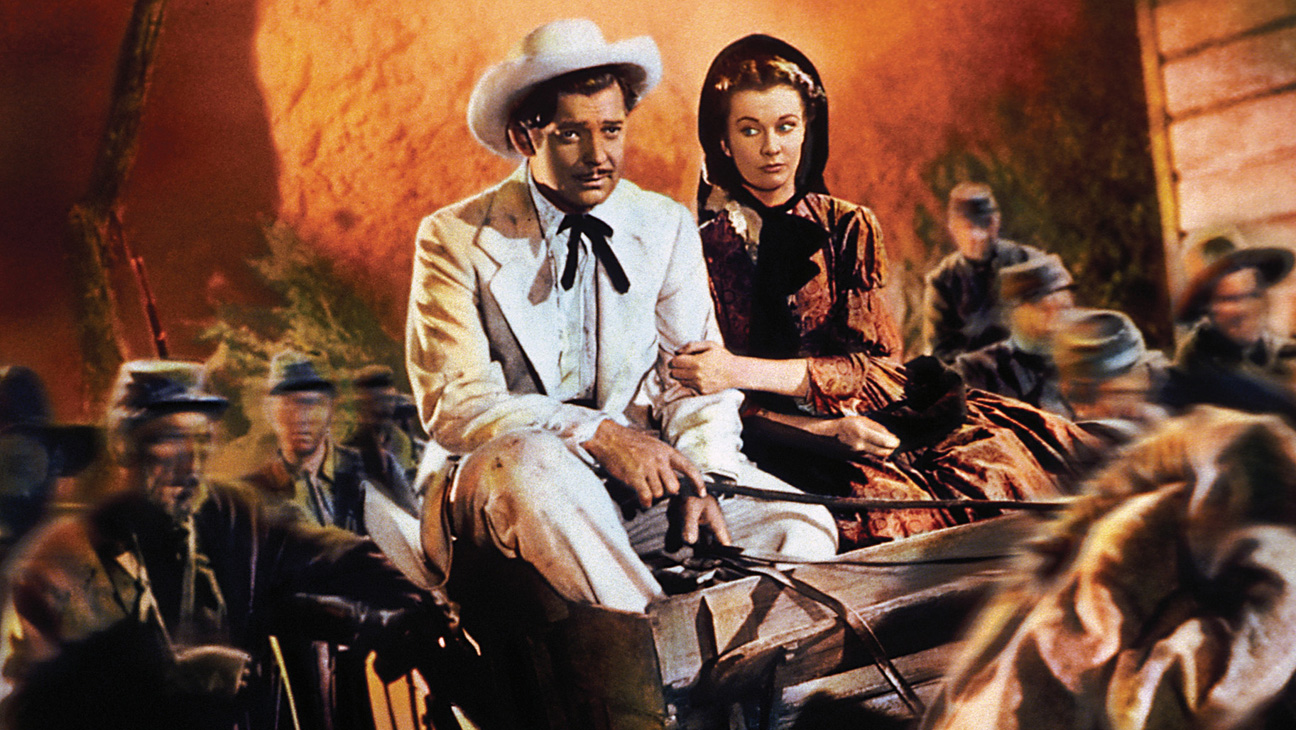SALT LAKE CITY —A few years ago, the uber-talented Deseret Digital Media editor Lindsay Maxfield and I started a string of emails that forever changed the way I saw the movie, “Gone with the Wind.”
We had been chatting about possible articles focusing on classic films when Maxfield mentioned how surprised she was to hear some people think of Scarlett O’Hara as a terrible person. Up until that point, it had never occurred to me that anyone saw Scarlett as anything other than a slave-holding, physically abusive, manipulative home wrecker. So, I asked my wife what she thought about the topic. Her reply? “Of course Scarlett’s the good guy.”
Since that email exchange with Maxfield, my wife and I have watched “Gone with the Wind” at least three times, and every time we’ve actively pointed out moments for and against Scarlett’s good-guy status.
Collectively, I believe all three of us have changed or at least softened our “Gone with the Wind” positions. And this got me wondering, how many other characters have I been totally wrong about, or at least didn’t realize audiences see differently than me.
Here are five characters I now suspect aren’t as heroic as Hollywood would like us to believe.
Scarlett O’Hara — ‘Gone With the Wind’
As I mentioned, both Maxfield and I (and my wife) have all at least softened our original positions concerning Scarlett O’Hara from “Gone with The Wind.” But in a nutshell, here were some of our original arguments.
For Maxfield, Scarlett’s deeds taken out of context do in fact seem horrible, but when you look at the entire story, Scarlett rises above her very difficult surroundings to take care of the people who matter most to her. To quote Maxfield:
“(Scarlett’s) not afraid to go after what she wants. This is still not easy for women these days, even 150 years later, because the minute a woman becomes too assertive she is labeled something vulgar and out goes her credibility. So in a way, yes, Scarlett can be seen as a role model. ”
To be honest, I was sympathetic to Maxfield’s position, but we disagreed on what exactly “too assertive” means.
Sure, you can write off Scarlett’s first marriage as impulsive, but when Scarlett lies to her sister’s fiancée and ultimately marries him for money, we’re definitely approaching a grey area. I think for me, the moment Scarlett turns from ambiguous hero to fully formed villain is when she betrays the only person who is unconditionally kind to her, Melanie Hamilton.
Not the first time of course, when Melanie is simply engaged to heartthrob Ashley, or even the second time when Ashley’s returning home from the war. No, it’s the third time and then final betrayal on Melanie’s death bed that illustrates just how slimy Scarlett really is.
My grievances aside, Maxfield’s position is probably closest to the author’s intent. As far as story analysis goes, Melanie dies a weak and helpless character while Scarlett stands strong to fight another day. The last shot of the film is actually a silhouette of Scarlett heroically posing in front of a fading sun, so at the very least, we can be sure as an audience we’re supposed to see her as a good guy. But I don’t know. After three additional viewings and a string of entertaining emails, I can only say she’s half-good-guy at best.
The Narrator — ‘Fight Club’
Anyone who has seen “Fight Club” will tell you this is the most obvious movie on the list and for reasons we probably shouldn’t delve into. As it turns out there are people who still haven’t seen this movie but have it somewhere near the top of their films-to-see-before-I-die list. What kind of terrible person would I be if I ruined one of cinema’s big reveals for a barely serious entertainment article?
That said, even at the very beginning of the movie Edward Norton’s character uses lies and deceit to temper his insomnia before starting a seedy, underground fight club. The Narrator begins with bad motives and never learns a lesson or finds a way to redeem his underlying character. Still he’s not the typical antihero, which would have disqualified him from our list, because he’s also the person trying to stop Tyler Durden (Brad Pitt), so in the context of the story he’s trying to do the right thing — mostly.
Fine, I’ll give you that this second pick is rather ambiguous for anyone not familiar with the movie. But trust me, the Narrator belongs here. At least, the mostly good part of him does.
Ariel — ‘The Little Mermaid’
That’s right, we’re following “Fight Club” up with “The Little Mermaid.”
I’m sure Ariel isn’t the worst mermaid under the sea, but her little teenage rebellion and irrational cross-species crush almost costs King Triton his trident, which would’ve ultimately tipped the scales of good and evil and ruined the lives of her fellow merpeople.
Not only does the story begin with Ariel flagrantly embarrassing her entire family, but within the first 10 minutes of the movie she’s breaking one of her world’s most important laws — “Contact between the human world and the mer world is strictly forbidden.”
And how does Ariel thank her father for not sending her tail to prison after committing an underwater felony? She makes a deal with the devil to change her body type so she can kiss a boy.
In the end, kids who watch “The Little Mermaid” learn contracts are only binding until you murder the other party involved, and parents will learn their lessons once they’ve been turned into a dying sea weed. These are not principles they teach at good guy college.
Morpheus — ‘The Matrix’
This one is tricky, and in the end, it’s going to be up to your own philosophical position to decide if Morpheus is a good guy or bad guy.
But here’s the deal: as the Matrix trilogy progresses we learn Earth is barely inhabitable. It’s to the point where even naturally growing your own food is out of the question. Most daily meals consist of some tapioca-pudding-looking protein supplement.
So for Morpheus to show up at someone’s house offering pills that he claims will help them to see the world for what it really is, well one, that’s already a bit shady. And two, who says no to answers to the universe?
Morpheus’ mission is to ultimately transition the human race from a reasonably happy existence where they can still eat steak and ice cream sundaes to living off cold soupy mushy stuff. At the very least, that suggests his good-guy status deserves another look.
Ultimately, your take on Morpheus will probably depend on how you rank truth vs happiness, and that’s not a topic we’re going to get to the bottom of in this article.
Joy — ‘Inside Out’
“Inside Out” is one of those movies that really only needed to be about 15 minutes long.
Unlike the spoiler free “Fight Club” section, I’m going to work through Joy’s less-than-heroic ways, so if you haven’t seen the movie go ahead and stop reading now.
For those still reading, this movie would’ve ended the moment Joy let Sadness cry it out with her beloved Riley. But not only does Joy prevent Sadness from sharing some alone time with her favorite person on the planet, Joy actively manipulates situations to ensure Sadness is excluded from Riley’s entire healing process. That’s practically the definition of bullying, which is not how most people want to think of their protagonists.
But the brilliance of “Inside Out” is that Joy absolutely believes she’s doing the right thing, which makes her actions all the more dangerous. In spite of all the evidence telling her something’s wrong, that maybe her happy-all-the-time approach isn’t the perfect fit for every situation, Joy believes her commitment to what she knows is noble.
To her credit, and unlike a few characters on this list, Joy realizes her mistakes and tries to set things right by the closing credits but by the time she does, everyone has paid a pretty high price for her actions.
Do I love Joy? Absolutely. But think of how much better Riley’s world would’ve been had Joy chosen to look for worth in Sadness from the very beginning.
Originally published KSL.com

